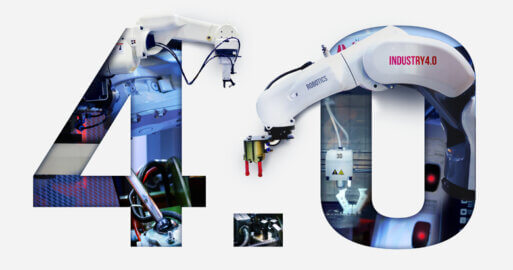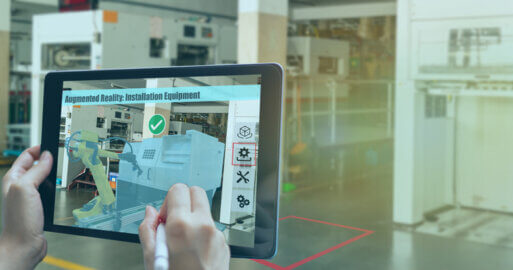IIoT (Industrial IoT) and Industry 4.0 – Examples
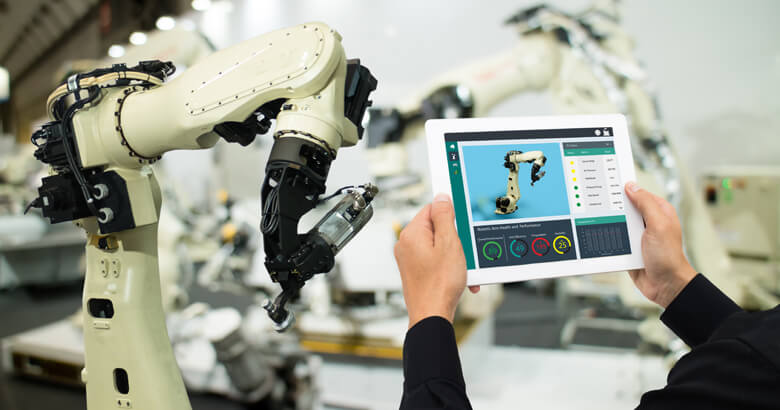
By connecting and integrating machines and facilities with complex IT systems, IIoT and Industry 4.0 offer new possibilities to make processes transparent and flexible while responding precisely to individual customer requirements. IIoT solutions are used from product development to production, logistics, after-sales service, marketing and sales. This article gives you examples of how IIoT and Industry 4.0 works in practice.
What is IIoT and Industry 4.0 – Would you like to start by learning about the basics? Then read our introduction to the (industrial) Internet of Things. This blog continues with practical examples that illustrate how production and business processes can be optimised by IIoT and Industry 4.0.
IIoT and Industry 4.0 Examples: Product Development
With the help of networked systems, products today can be tracked over their entire lifecycle – from the initial idea to the finished product, including maintenance and service all the way to its modernization. The digital twin, i.e. a digital image of a product in use, offers new possibilities for cooperation between manufacturers, customers and suppliers beyond pure product development. Especially in collaborative product development and data exchange in mechanical engineering and other technical industries, IIoT makes processes more efficient, easier and safer. Products can be optimised completely decentralised and individualised up to batch size 1. At the same time, all processes remain transparent across the entire value chain.
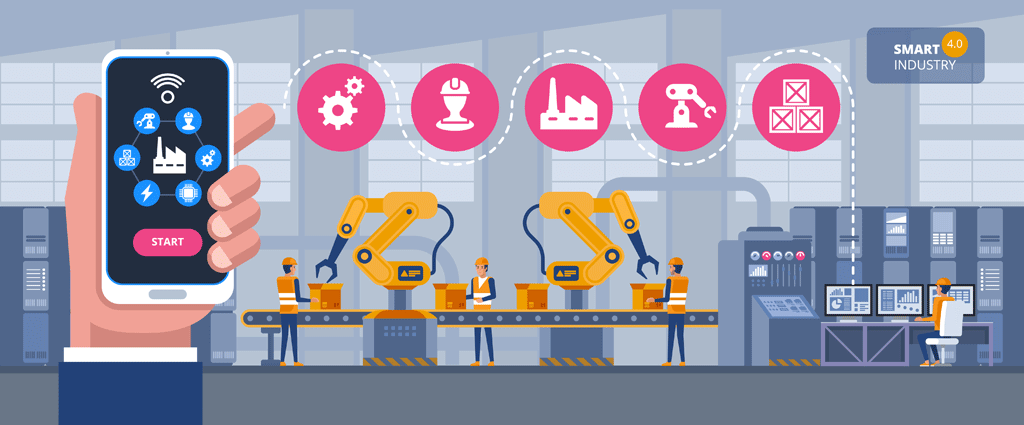
IIoT and Industry 4.0 Examples: Manufacturing and Production
Even individual customer requirements can be met more and more effectively, not only in product development, but consequently also in the manufacture of products. Interoperability is a core requirement of Industry 4.0. But also the cooperation between humans and robots, the so-called collaborative assembly, is a key development in production in times of Industry 4.0. As planning and production are becoming more and more complex, they require a close cooperation of all parties involved in a value chain and a continuous product life cycle management. This is made possible by providing end-to-end data exchange and information technology support, even during ongoing production.
IIoT and Industry 4.0 Examples: Logistics
A central task of optimised logistics processes is to transport the right goods in the right quantity to the right place at the right time. Through networked and integrated digital ecosystems, logistics processes are mapped transparently and flexibly in real time. It seamlessly orchestrates disposition forecasting from the planning of transport capacity utilization to the optimization of vehicle turnaround times elevating the provision of customer information. Modern radio and sensor technology on the vehicles collects raw data on, for example, location and movement status, mileage, load status and speed. This data can be further processed by internal dispatching systems and used, for example, as a basis for digital customer services, such as exact delivery data. IoT platforms with hybrid integration functions are crucial for such services.
IIoT and Industry 4.0 Examples: After Sales Services
Products and services can be mapped virtually via IoT platforms and offered as Smart Services in combination with other digital services. The provision of product information, such as the use of devices in the context of pay-by-use payment models, is becoming increasingly important in this context. Products, machines and equipment provide data that are offered to customers and business partners by manufacturers and suppliers as valuable services. Data on the service life and use of machinery and equipment for repair and maintenance also play an increasingly important role in this context.
IIoT and Industry 4.0 Examples: Marketing and Sales
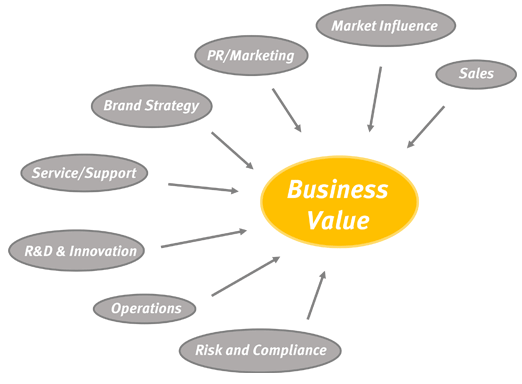
In the area of marketing and sales, IoT can be used, for example, to collect and evaluate data on customer behaviour (customer relationship management CRM). In this way, global advertising and sales strategies and branding concepts can be planned and executed more foresightedly and in a more target-group-oriented manner.
It is also possible to track an individual customer’s interest in buying online in order to address them in a personalized manner and make an offer tailored to their interests.
Another meaningful value that can be analyzed using the IoT data from the CRM system is the customer value.
Various predefined parameters are compared with each other in order to take measures to increase customer value.
IIoT and Industry 4.0 solutions are implemented in all areas. This results in more efficient processes and opportunities for cooperation and monitoring at all levels, new and improved data-based business models and, in the end, more satisfied customers and employees. Every day new opportunities are discovered for using IIoT solutions profitably. The basic prerequisite for this is the deep integration and networking of all systems and the creation of comprehensive digital value-added networks.
For over 30 years, the consulting specialists at SEEBURGER have been supporting companies in the implementation of digitization projects along the entire value chain – from process optimization to integration and networking of business processes and applications. With the experience gained from more than 10,000 customer projects, they provide you with competent support.
Thank you for your message
We appreciate your interest in SEEBURGER
Get in contact with us:
Please enter details about your project in the message section so we can direct your inquiry to the right consultant.
Written by: Frank Stegmueller
Frank Stegmüller is one of the two corporate information security officers at SEEBURGER and has been with the company since 2008. He has over 25 years of experience in service, support and information security for Enterprise Application Integration, EDI, B2B, MFT, API, ITSM and digital transformation - both on in-house systems and from the cloud. He is involved in the ISO/IEC 27001, ISAE 3402 (SOC 1) Type 2 and TISAX certification for SEEBURGER Cloud Services and knows all about the intricacies of compliant data centre operations in international environments.




